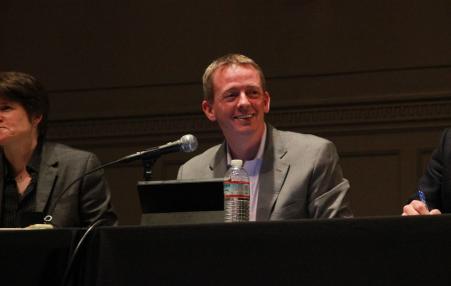http://rodrik.typepad.com/dani_rodriks_weblog/2018/01/has-global-finance-reformed-itself-more-than-it-appears.html
The answer is yes, according to Ilene Grabel in her fascinating new book When Things Don't Fall Apart. I wrote a preface for the book, which is reproduced below. It explains why I liked the book so much.
It happens only rarely and is all the more pleasurable because of it. You pick up a manuscript that fundamentally changes the way you look at certain things. This is one such book. Ilene Grabel has produced a daring and delightful reinterpretation of developments in global finance since the Asian financial crisis of 1997–1998.
The book addresses, and resolves, a long-standing puzzle: Why has our present model of financial globalization been so resilient, despite an abysmal track record that includes the most severe global financial crisis since the Great Depression, recurrent sovereign debt crises (in Latin America, East Asia, Russia, and Turkey), and many other disappointments (such as capital flowing "uphill" from poorer to richer nations)? How is it that we have not jettisoned this model for something that is more sensible and works better?
Professor Grabel's insight is that those of us who were looking for signs of change have had the wrong idea about how real reform often happens. We have been mistaken in searching for evidence of wholesale, programmatic reconsideration of the rules of global finance. Systems of governance rarely change through established blueprints, a master plan, or radical reforms. And besides, such a reform path would suffer from the same kind of hubris that the neoliberal playbook produced.
Instead, she suggests, it is the cracks in the consensus, the local heresies, and the small departures and innovations that matter and lead us in an altogether novel direction. Inconsistency, ambiguity, and incoherence are useful and productive—they are a feature, not a bug.
Thus, Professor Grabel builds a case for a gradual, evolutionary change in the global financial system and argues that there is at least as much evidence for this alternative thesis as there is for the regime-continuity thesis. The Asian financial crisis may have given the IMF new powers, but it also set in motion defensive moves on the part of developing countries, such as self-insurance through reserve accumulation and mutual swap arrangements. The G-20 and Financial Stability Board may have been largely ineffective to date, but there are signs they can evolve into experimental, networked forms of global financial governance accommodating greater developing-country influence. The IMF itself has not been overhauled, but it has changed: it no longer treats capital controls as taboo, has distanced itself from austerity, and pays increasing attention to social safety nets. And look at the new institutions that have been created—regional reserve pooling arrangements, development and infrastructure banks—and the forum-shopping benefits they confer to client states.
Put all of this together and we have what Professor Grabel calls a move toward "a more complex, fragmented, and pluripolar direction" in international financial governance, "driven in large part by initiatives from below rather than from above." The evolving system is one that provides greater policy space, enables "unscripted innovations," and makes "pragmatic adjustments not dictated by an overarching scheme of economic organization."
The book's deeper argument about how regimes really change is as interesting as the specific details of the case of international finance. Here looms the large figure of Albert Hirschman. As Professor Grabel is happy to remind us at every turn, her argument is very much a Hirschmanian one. Hirschmanian motifs—the advantages of improvisation, surprise, incrementalism, and pragmatism—are all over the book.
But to say that the book owes a debt to Hirschman is to undersell it. The Hirschmanian perspective has rarely been deployed so well and to such great effect. The reason Hirschman never developed a school of thought, as he himself well recognized, is that his thinking did not lend itself to emulation and replication. The flashes of brilliance, the unexpected turn of argument, and the relish of paradox that characterized his style spawned admirers but not followers. But we have all of those in this book. Professor Grabel has produced not only an extensively researched book but also one that is tremendously fun to read.
My colleague Roberto Mangabeira Unger likes to say that universal orthodoxy cannot be defeated solely by local heresies; overcoming it requires a universalizable heresy. Professor Grabel disagrees, as would Albert Hirschman. She would be the first to acknowledge that the incremental innovations she discusses in the book do not, in her words, "come close to displacing neoliberalism from top to bottom." But the neoliberal consensus is gone, the institutions that uphold it have become more agnostic and flexible, and new arrangements have sprung up. We do not yet know where the international financial system will end up. Professor Grabel says this is as it should be: enjoy the Hirschmanian moment, and keep your fingers crossed that sanity and common sense will prevail.
-- via my feedly newsfeed
